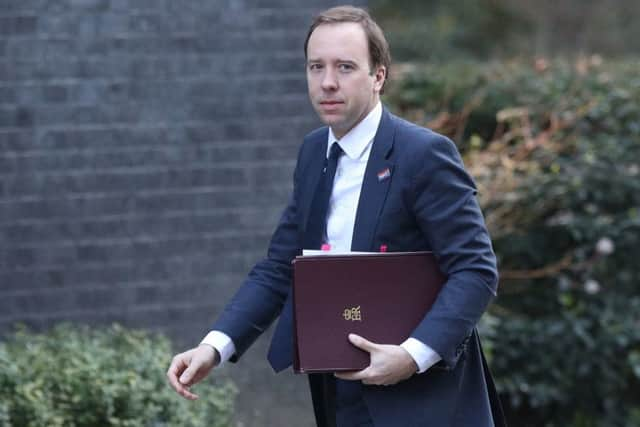Mike Padgham: Ignoring care crisis won’t make it go away as less than 10 out of 650 MPs reply to my open letter


What a damning indictment of the seriousness with which our elected representatives treat the current crisis in the way we care for our oldest and most vulnerable adults. I know there are other, very pressing issues in front of our Government – rising knife crime and Brexit to name just two and I would never wish to belittle the importance of those, or many others, in these turbulent times.
Advertisement
Hide AdAdvertisement
Hide AdBut while month after month rolls on without any meaningful action on adult social care, more and more of those vulnerable people aren’t getting the support they need and deserve.


I have previously written to the Government and to the Prime Minister on several occasions, inviting them to visit and see the challenges facing social care providers on the front line for themselves – an invitation I repeat through the columns of this newspaper today to Theresa May and the Secretary of State for Health and Social Care, Matt Hancock. I know they are busy people, and I am also happy to go to meet with them.
In my letter, I called for integration of social care with NHS care, better funding for social care and for care to be made zero-rated for VAT, all of which would enable social care providers to invest, properly reward and recruit staff and be ready for a rapidly increasing demand for care from an ageing population.
Advertisement
Hide AdAdvertisement
Hide AdI also called for the long-awaited Green Paper on social care to be published at once, mindful of the fact that, even when it is released, there will be many months of consultation, discussion and debate on it before any changes are made.


My thanks to those who did reply. The answers that came were broadly sympathetic that more needs to be done.
Liz Truss MP, Chief Secretary to the Treasury, acknowledged that there is “a need to reform social care to place it on a more sustainable footing for the longer term. The Government recognises this and we have committed to bring forward a Green Paper with options for reform”.
She says the Government “has given councils access to almost £10bn more of dedicated adult social care funding over three years from 2017-18”.
Advertisement
Hide AdAdvertisement
Hide AdDespite her assurances, every day, the statistics keep coming. More than 1.4m people living without the care they need and care providers going out of operation or handing back contracts because it is not economically viable to deliver them.
In reality, that means fewer care home beds for people to go to and fewer people available to visit people in their own home to provide them with the help they need.
For example, more than 100 care home operators collapsed in 2018, meaning more than 400 have gone under in the past five years, due to funding cuts, debts and rising costs.
Health for Care, a coalition of 15 health organisations, led by the NHS Confederation, has warned that services in parts of the country are near collapse.
Advertisement
Hide AdAdvertisement
Hide AdAt the same time, fears and uncertainties around Brexit are worrying. The Association of Directors of Adult Social Services (ADASS) has warned that post-Brexit immigration laws and the £30,000 minimum salary threshold for skilled workers to come to the UK after Brexit will worsen the growing workforce crisis in social care. That £30,000 threshold needs to be reduced.
At the moment around 100,000 people from the EU work in social care. If that source of employees is disrupted, the workforce crisis will indeed deepen.
Yet, as the population ages, we are going to need an extra 650,000 social care workers by 2035. It is very hard to see where they are going to come from.
Here we are in late March. Chancellor Philip Hammond’s Spring Statement has already come and gone without any mention of social care – a notable omission not picked up at the time.
Advertisement
Hide AdAdvertisement
Hide AdAnd there is still no sign of the Green Paper, let alone a start to any changes in adult social care. Amid rumours that it is being put back until May (if Mrs May’s government is still standing by then), every politician needs to know that we need action now for the sake of people who are going without care today and tomorrow.
It is tempting to despair. But change has to come and will come because the demands of an ageing population will determine that – and the system cannot continue as it is indefinitely. The question is, how long will we have to wait and what damage is happening to the quality of life of so many older and vulnerable people in the meantime?
We shouldn’t be surprised. After all, we have had a dozen social care ministers in the past 20 years and 13 documents (reviews, commissions, consultations and Green and White papers) in the past 17 years. Tony Blair set up a Royal Commission on funding social care early on in his premiership and governments have been wrestling with the issue ever since.
So the wait for meaningful reform on social care makes Brexit’s two years and counting look like the blink of an eye. Above all, social care needs a champion. It needs someone in government who will take up the cause, show leadership and make a name for themselves in the process. Someone needs to step up and show their true potential by solving a crisis that has baffled governments for generations.
Mike Padgham is chair of the Independent Care Group based in Scarborough and a national campaigner on social care.